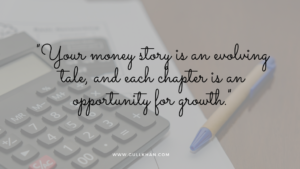Ah, New Year’s resolutions—the promises we make with all the hope and excitement of a fresh start. “This is the year I’ll finally get in shape.” “This is the year I’ll save more money.” “This is the year I’ll stop procrastinating.”
Sound familiar?
Every January, millions of us sit down with a pen and paper or our favorite app, creating a list of all the things we want to achieve in the year ahead. There’s a certain magic in those moments—a sense of possibility and a belief that this year will be different.
But let’s be honest: how many of those goals are still standing strong by February? Studies show that nearly 80% of New Year’s resolutions fail by mid-February. And if you’ve ever set a resolution and watched it quietly fade into the background of your busy life, you’re not alone.
So why is it so hard to stick to them? And more importantly, what can you do differently this year? Let’s break it down.
1. Resolutions Often Focus on Surface-Level Actions
Most resolutions are about what we want to do, like going to the gym more often, cutting back on sugar, or saving more money. But they rarely address the deeper reasons why we haven’t been able to do those things already.
For example, if you’ve been struggling to “spend less,” the problem might not be the budgeting app you’re using. It could be rooted in emotional habits, like spending as a form of comfort, or in limiting beliefs like “I’ll never have enough money.”
The truth is, unless we address the underlying why behind our habits, our efforts to change often feel forced and unsustainable. It’s like putting a band-aid on a wound that needs stitches—it might cover things up for a while, but it won’t hold in the long run.
2. We Forget That Motivation Fades
At the start of the year, motivation is running high. You’re excited about the possibilities, envisioning a new and improved version of yourself. But motivation is like a spark—it’s bright and energizing, but it burns out quickly.
When that initial excitement fades (and it will), what’s left? For most people, the answer is: nothing. Without a solid foundation of discipline, structure, and self-belief, resolutions tend to crumble under the weight of everyday life.
It’s not about being “bad” at sticking to goals—it’s about understanding that motivation alone isn’t enough to fuel long-term change.
3. Unresolved Emotional Blocks Sabotage Our Progress
This is the sneaky one. If you’re carrying unresolved fears, doubts, or limiting beliefs, they’ll act as silent saboteurs when you try to make changes.
Have you ever found yourself falling back into old habits, even when you knew better? That’s often your subconscious trying to keep you in the “safe zone” it knows. Change feels risky to the brain, even when it’s positive, so it resists.
It’s not that you’re lazy or undisciplined—your energy is simply out of alignment with your goals. Until you address the emotional blocks holding you back, progress will always feel like an uphill battle.
What to Do Instead
So how can you actually set goals that stick? Here are three powerful shifts to try:
1. Focus on Your “Why”
Instead of just saying, “I want to lose weight,” ask yourself why that matters. Is it about feeling more confident? Living longer to see your kids grow up? Having the energy to travel and experience life?
When your goals are tied to a deeper purpose, they feel more meaningful. And that sense of purpose makes it easier to stay committed when challenges arise.
2. Build Habits, Not Grand Plans
Big resolutions can feel overwhelming, which is why breaking them down into small, actionable habits works so much better. Instead of vowing to “save $5,000” this year, start with saving $5 a day or setting up an automatic transfer to your savings account.
These small actions might feel insignificant, but they add up over time. And with every bit of progress, you’ll build the momentum and confidence to keep going.
3. Clear the Energy Holding You Back
This is the game-changer. If you’ve tried everything and still feel stuck, it’s worth looking at the emotional blocks and limiting beliefs standing in your way.
Clearing trapped energy—whether it’s fear, self-doubt, or past failures—allows you to approach your goals with a clean slate. Imagine how much lighter and more aligned you’d feel without the weight of old patterns holding you back.
Ready to Start Fresh?
If you’re tired of setting goals only to feel frustrated or stuck, it’s time to try something different. This Sunday, I’m hosting a free live Energy Clearing Session to help you release the limiting beliefs and mental blocks keeping you from the life you want.
🗓 Date: Sunday, February 2nd
🕕 Time: 6pm UK (1pm ET, 10am PT)
📍 Add to Calender: https://calendar.app.google/9jse1Hs1qkP4CcPL6
This isn’t just about resolutions—it’s about creating space for the abundance, clarity, and success you deserve in 2025. Let’s make this the year you finally feel aligned with your goals.
I’ll see you there!



 Have you ever noticed that some people seem to attract wealth effortlessly, while others struggle with money despite working hard? The difference lies not only in their actions but in their energy. In the realm of manifestation and the Law of Attraction, everything, including money, carries energy. If you’re constantly worried about finances or feel unworthy of wealth, your energy might be blocking the flow of abundance into your life.
Have you ever noticed that some people seem to attract wealth effortlessly, while others struggle with money despite working hard? The difference lies not only in their actions but in their energy. In the realm of manifestation and the Law of Attraction, everything, including money, carries energy. If you’re constantly worried about finances or feel unworthy of wealth, your energy might be blocking the flow of abundance into your life. Your beliefs about money shape how you experience it in your life. Many of us are conditioned from a young age to believe that money is hard to earn, that it’s tied to struggle, or that having too much makes us greedy. These limiting beliefs create an energetic block, preventing the flow of abundance.
Your beliefs about money shape how you experience it in your life. Many of us are conditioned from a young age to believe that money is hard to earn, that it’s tied to struggle, or that having too much makes us greedy. These limiting beliefs create an energetic block, preventing the flow of abundance. Gratitude is a cornerstone of manifestation because it shifts your focus from lack to abundance. When you appreciate the money you already have, no matter how little it may seem, you create space for more. This mindset moves you away from constantly wanting and feeling dissatisfied, to a place of contentment and openness to receive.
Gratitude is a cornerstone of manifestation because it shifts your focus from lack to abundance. When you appreciate the money you already have, no matter how little it may seem, you create space for more. This mindset moves you away from constantly wanting and feeling dissatisfied, to a place of contentment and openness to receive. Attracting financial wealth through energy alignment is not a one-time task; it’s an ongoing journey of personal growth, trust, and vibrational tuning. By shifting your mindset, embracing feelings of abundance, expressing gratitude, taking inspired action, and releasing resistance, you can rewire your energy to attract wealth effortlessly.
Attracting financial wealth through energy alignment is not a one-time task; it’s an ongoing journey of personal growth, trust, and vibrational tuning. By shifting your mindset, embracing feelings of abundance, expressing gratitude, taking inspired action, and releasing resistance, you can rewire your energy to attract wealth effortlessly.
 Alright, so you’ve probably heard intentions and goals tossed around like they’re interchangeable, but let’s hit pause and break it down. Intentions and goals might roll in the same crew, but they’re running different games.
Alright, so you’ve probably heard intentions and goals tossed around like they’re interchangeable, but let’s hit pause and break it down. Intentions and goals might roll in the same crew, but they’re running different games. Setting intentions isn’t a fluffy ritual; it’s a realignment with your higher self. Trust your gut, take action, and watch your financial landscape transform. Get ready for the wealth, abundance, and joy you’ve got coming your way.
Setting intentions isn’t a fluffy ritual; it’s a realignment with your higher self. Trust your gut, take action, and watch your financial landscape transform. Get ready for the wealth, abundance, and joy you’ve got coming your way.
 Saving money provides a sense of security, offering a refuge during times of crisis. A healthy savings account not only grants financial freedom but also empowers individuals to make life choices independent of their regular paycheck. Whether it’s indulging in a dream vacation, purchasing desired items, or realizing ambitious dreams like entrepreneurship or charitable contributions, the perks of saving money are undeniable.
Saving money provides a sense of security, offering a refuge during times of crisis. A healthy savings account not only grants financial freedom but also empowers individuals to make life choices independent of their regular paycheck. Whether it’s indulging in a dream vacation, purchasing desired items, or realizing ambitious dreams like entrepreneurship or charitable contributions, the perks of saving money are undeniable. The financial landscape is fraught with challenges, and one particularly formidable obstacle is the growing chasm between income and expenses. The relentless surge in the cost of living, especially in critical areas such as healthcare, housing, and childcare, has created a scenario where fixed monthly budgets are stretched to their limits. This dire income-expense discrepancy leaves scant room for the inclusion of a savings component, especially for those grappling with the harsh realities of low-income households.
The financial landscape is fraught with challenges, and one particularly formidable obstacle is the growing chasm between income and expenses. The relentless surge in the cost of living, especially in critical areas such as healthcare, housing, and childcare, has created a scenario where fixed monthly budgets are stretched to their limits. This dire income-expense discrepancy leaves scant room for the inclusion of a savings component, especially for those grappling with the harsh realities of low-income households.
 As we conclude this journey through the financial landscape, remember that building a solid savings foundation is more of a marathon than a sprint. It’s a voyage that requires both time and commitment. But hey, with the right mindset, a toolkit full of practical tips, and a supportive network, anyone can seamlessly weave saving money into the fabric of their lifestyle.
As we conclude this journey through the financial landscape, remember that building a solid savings foundation is more of a marathon than a sprint. It’s a voyage that requires both time and commitment. But hey, with the right mindset, a toolkit full of practical tips, and a supportive network, anyone can seamlessly weave saving money into the fabric of their lifestyle.
 The concept of self-focus is frequently misconstrued, shrouded in myths and misconceptions. Far too often, it is mislabeled as narcissism, painting a picture of a self-absorbed individual who is devoid of empathy and consumed by a superficial sense of self-importance.
The concept of self-focus is frequently misconstrued, shrouded in myths and misconceptions. Far too often, it is mislabeled as narcissism, painting a picture of a self-absorbed individual who is devoid of empathy and consumed by a superficial sense of self-importance. “But I am focusing on myself,” you might protest, citing massages, healthy eating, or even journaling. Yet, if true abundance eludes you, it’s time to examine the yardstick against which you’re measuring success. Is it genuinely yours, or is it borrowed from society’s skewed metrics?
“But I am focusing on myself,” you might protest, citing massages, healthy eating, or even journaling. Yet, if true abundance eludes you, it’s time to examine the yardstick against which you’re measuring success. Is it genuinely yours, or is it borrowed from society’s skewed metrics? Abundance isn’t a treasure at journey’s end; it’s a companion that walks beside us when we tread the path of self-discovery. Focusing on ourselves isn’t about building walls; it’s about aligning our inner truth with the world around us. In this harmony lies true wealth, not just materially but spiritually and emotionally. This alignment is the gateway to abundance, where what we give and receive resonates with the deepest parts of our being, creating a life not just lived, but cherished!
Abundance isn’t a treasure at journey’s end; it’s a companion that walks beside us when we tread the path of self-discovery. Focusing on ourselves isn’t about building walls; it’s about aligning our inner truth with the world around us. In this harmony lies true wealth, not just materially but spiritually and emotionally. This alignment is the gateway to abundance, where what we give and receive resonates with the deepest parts of our being, creating a life not just lived, but cherished!

 It kindles the fire of desire within us, and this desire is not a passive longing but a call to action. When we heed this call, we set into motion the gears that drive us toward success and fulfillment.
It kindles the fire of desire within us, and this desire is not a passive longing but a call to action. When we heed this call, we set into motion the gears that drive us toward success and fulfillment. The law of prosperity isn’t merely a concept; it’s a living, breathing tapestry woven with threads of divine providence and human agency. On the one hand, there exists a benevolent Divine Source, a wellspring of blessings that showers us with potential and possibility. On the other hand, we stand as sculptors of our own fortune, endowed with the tools of will, action, and imagination.
The law of prosperity isn’t merely a concept; it’s a living, breathing tapestry woven with threads of divine providence and human agency. On the one hand, there exists a benevolent Divine Source, a wellspring of blessings that showers us with potential and possibility. On the other hand, we stand as sculptors of our own fortune, endowed with the tools of will, action, and imagination.